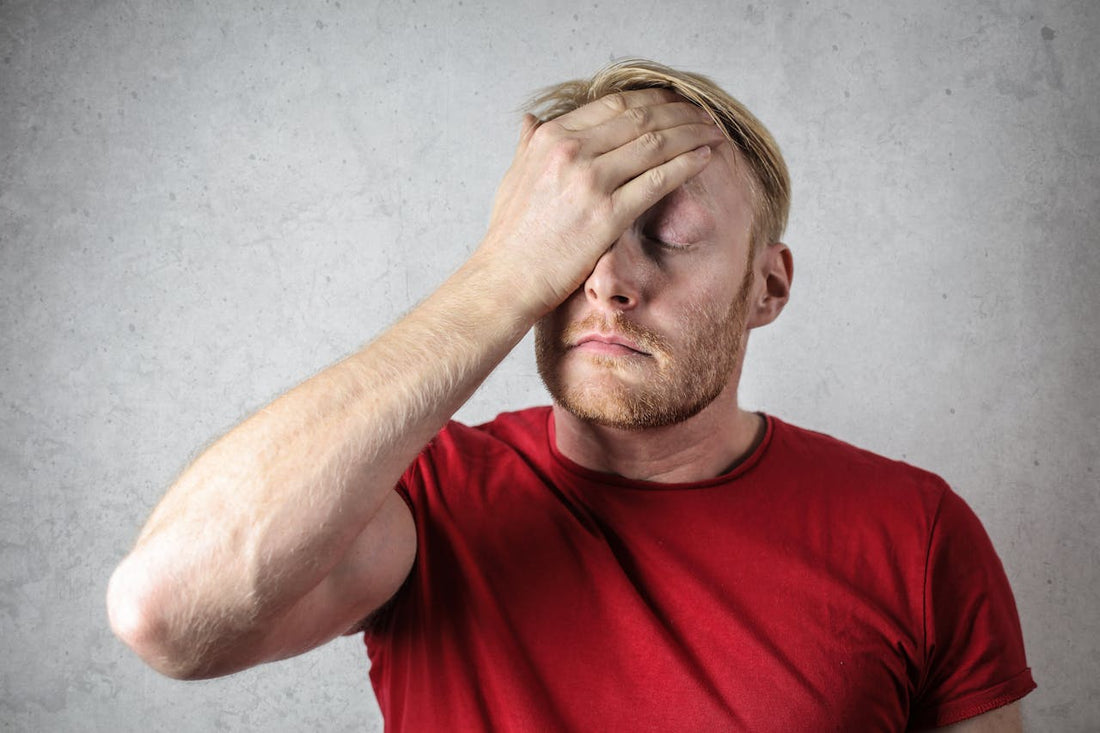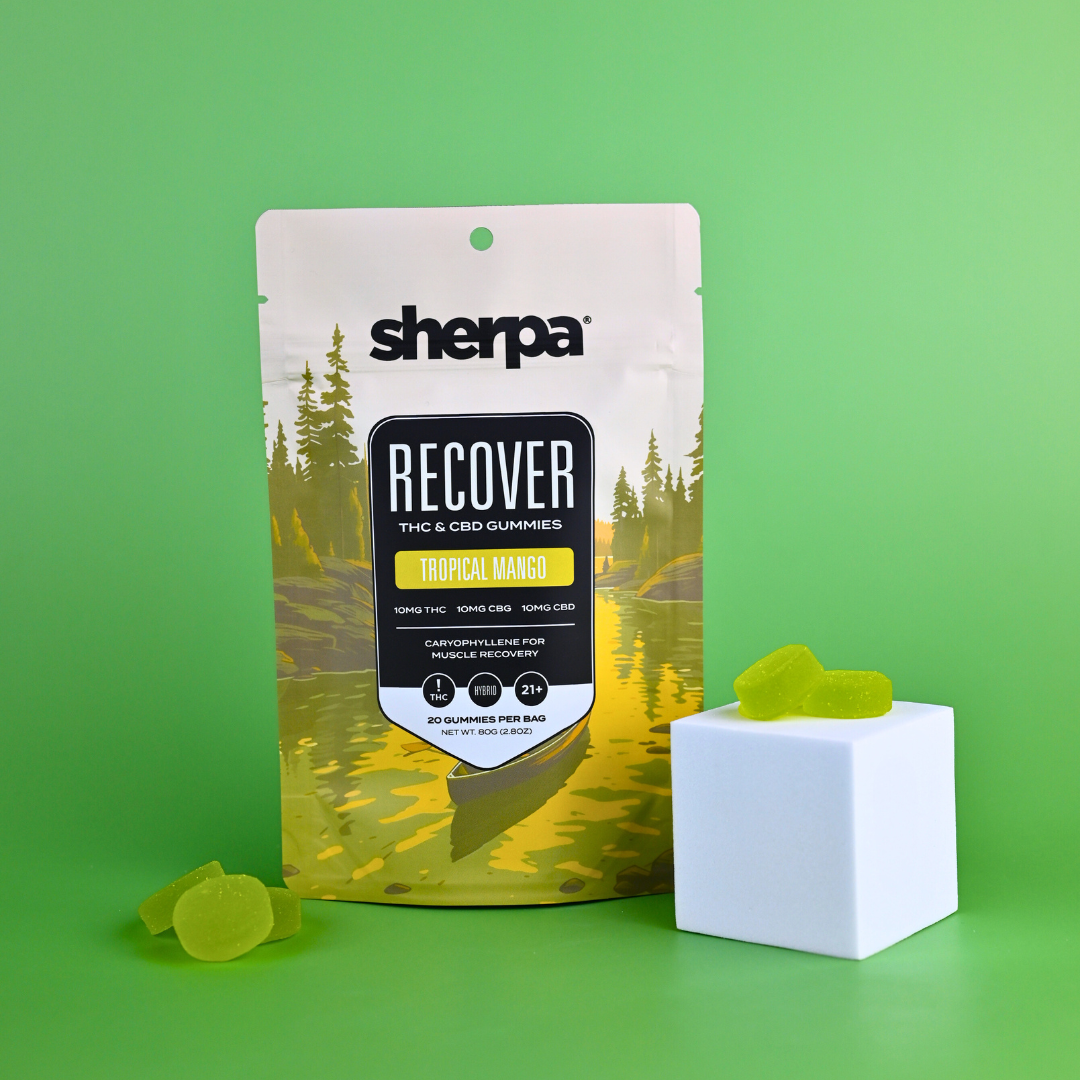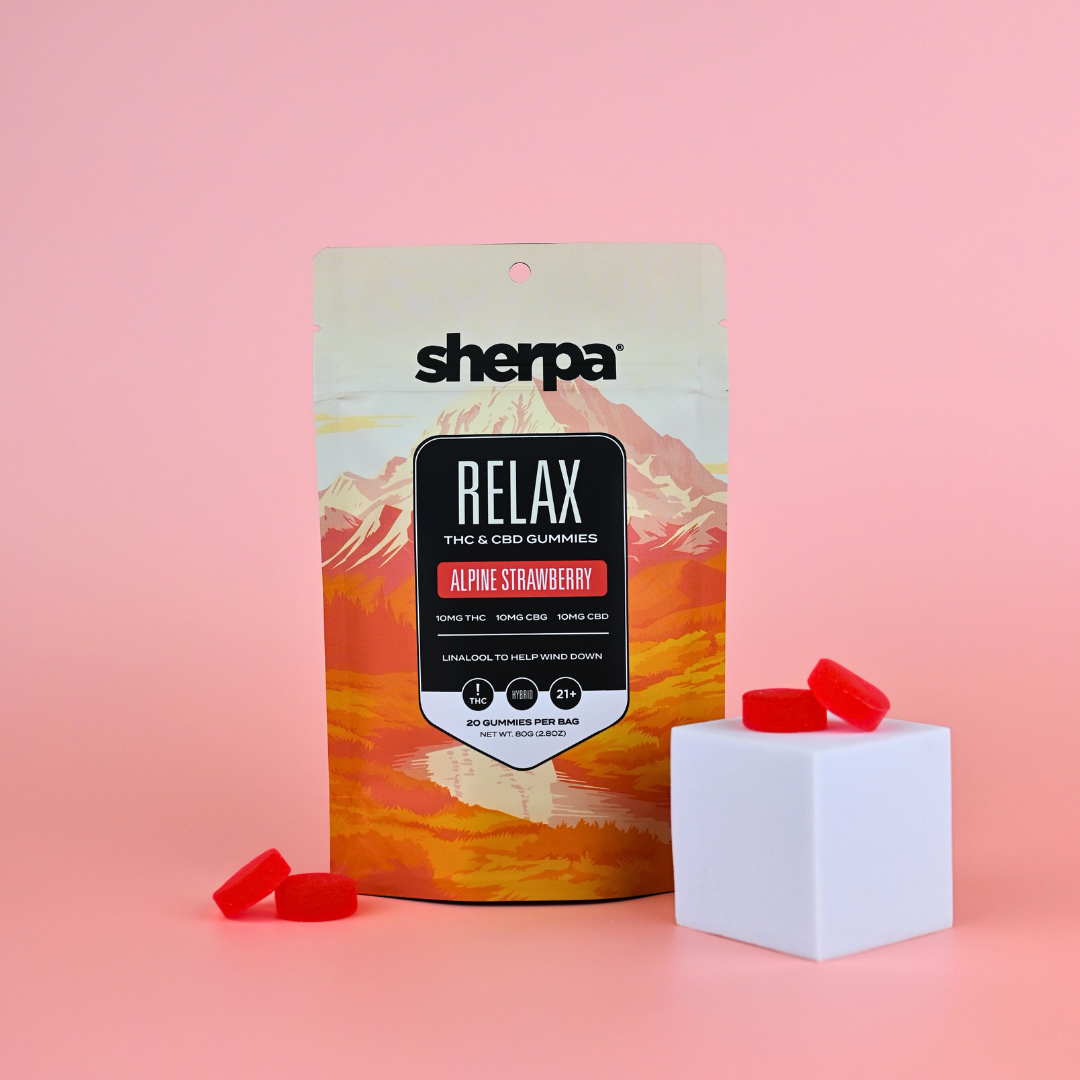
Our Blog
Can You Build a Tolerance to Edibles?
Can You Build a Tolerance to Edibles?
It's a pretty common dilemma. You start taking cannabis products and enjoy the benefits they bring to your life. You're better able to manage stress at work, you're a more enthusiastic friend, you're more fun at parties. Whatever it is, you're digging it.
But after a while you're not noticing the effects as much anymore. You're snippy with coworkers. You're passing on social gatherings. You punched your friend's birthday cake. Okay — maybe not that extreme, but something about your cannabis consumption just isn't working like it used to. It takes more to get you there, and "there" isn't exactly where it used to be.
Don't worry; it happens all the time. And it all comes down to tolerance.
The simple matter is yes, you can build a tolerance to edibles, just as you can with any other method of cannabis consumption. But understanding how edible tolerance works, the signs that you're developing a tolerance, and the steps you can take to manage it is really important for getting the most out of your cannabis experience.
So let's start by understanding what we mean by "tolerance" and how it works, exactly. So strap on your science hats; we're going back to school.
The Science Behind Cannabis Tolerance
To understand how THC tolerance develops, we need to dive into the science behind how cannabis interacts with your body, particularly through a system known as the endocannabinoid system, or the ECS for short. The ECS is a complex network of receptors and molecules that plays a crucial role in regulating many physiological processes, including your mood, how your body experiences pain, the way your appetite functions, your sleep, and your memory.
When you consume THC, it binds to CB1 receptors, which are primarily found in the brain and central nervous system, and CB2 receptors, located mainly in the immune system. These receptors are part of the ECS and help mediate the effects of cannabinoids. However, prolonged exposure to THC can lead to changes in how the ECS functions, resulting in the development of a tolerance.
Tolerance and Downregulation of Receptors
Over time, with frequent and prolonged exposure to THC, your ECS begins to adapt. This adaptation is often referred to as downregulation, a process where the number of CB1 receptors in your brain decreases or their sensitivity to THC diminishes. In other words, your brain becomes less responsive to THC over time, which means you need more of the substance to achieve the same effects you once felt with a smaller dose.
This downregulation is a protective mechanism designed to maintain balance in the body. While this means that the intoxicating effects of THC are less pronounced, it also means that the system is becoming tolerant to its effects. The more THC you consume, the more the ECS adapts, requiring you to increase your dose to feel the same intensity of the high. Essentially, your brain becomes "desensitized" to the presence of THC. Don't worry, though. This isn't a one-way street.
Upregulation: A Reversal of Tolerance
Interestingly enough, the body is also capable of reversing this tolerance through a process known as upregulation. If you stop consuming THC for a period — called a tolerance break; we'll get to that in a second — your body can "reset" the ECS. During this break, the number of CB1 receptors in the brain gradually returns to normal, and their sensitivity to THC increases. As a result, after a sufficient break, you'll find that a lower dose of THC will produce the same effects it did before your tolerance developed. Hey, presto — back to normal.
And by normal, we really mean normal. Studies have shown that the ECS isn't permanently altered by cannabis use. Once you stop consuming THC, the system begins to recover, and its functionality returns to normal within a relatively short time. The neuroplasticity of the brain allows it to "bounce back" after periods of non-consumption, making it possible for you to regain sensitivity to THC.
So that's good news. With that as context, let's move on and talk about if your tolerance is indeed growing.
Signs You're Building a Tolerance to Edibles
If you've been taking the same dosage of THC edibles — say, 10 mg — and aren't feeling the effects as strongly, it's almost certain that you're building up a tolerance. The simple way to put it is that you need a higher dose to feel the same effects. There are some other ways tolerance shows up, though.
A Higher Tolerance to Other Forms of Cannabis
Tolerance to edibles can sometimes extend to other forms of cannabis as well. If you find that you're also needing more THC in the form of smoking or vaping to achieve the same effects, it's a strong indicator that your body has adjusted to THC. The tolerance you develop from consuming edibles can influence your overall tolerance to cannabis, meaning your body may require more of the substance in any form to feel the same effects.
Increased Dosage Without Increased Satisfaction
This is common among regular edible users, especially those who consume edibles frequently. Over time, you might increase your dose from 10 mg to 20 mg, then 30 mg, and so on, without feeling as high as you used to feel with smaller amounts. While this might seem like a good way to counteract tolerance, it can lead to a range of unwanted effects, including excessive drowsiness, anxiety, or a more intense high than you're comfortable with. You're also going to find yourself going through a lot of product. Don't worry, though; we're going to move on to solutions next.
Solutions for Managing Edible Tolerance in the Short Term
If you notice that you're building a tolerance to edibles, don't worry — there are plenty of ways to manage it. While some people may choose to just jack up their dosage to infinity, there are healthier, safer, and more effective ways to maintain a satisfying cannabis experience without relying on larger and larger doses. Here are a few solutions for managing and resetting your tolerance.
Take a Tolerance Break
One of the most effective ways to reset your cannabis tolerance — whether to edibles or other forms of cannabis — is to take a tolerance break. This break allows your endocannabinoid system to reset, restoring its sensitivity to THC. A tolerance break can be as short as a few days or as long as several weeks, depending on how long you've been consuming cannabis regularly.
During your break, it's important to cut out from all forms of cannabis consumption — no cheat days! This will give your body time to recalibrate and reduce the amount of THC needed to achieve the desired effects, which is what you're going for. For some folks, this might take a few days of abstinence; for some people, it might be more like a few weeks. A good rule of thumb, though, is that three weeks is essentially a hard reset for most people. That's about how long it takes THC to leave the system of even heavy users.
Rotate Your Consumption Methods
If you don't want to go the tolerance break route, you can consider switching up your consumption methods for a while. If you're used to eating edibles but want to take a break from them, try smoking or vaping cannabis for a change. These methods offer a faster onset of effects and can give your body a break from digesting edibles while still providing a satisfying high.
Gradually Lower Your Dosage
Instead of jumping straight to larger doses to counteract tolerance, you can slowly reduce your dosage over time. If you've been consuming 20 mg of THC per serving, try cutting that down to 15 mg or 10 mg and assess how you feel. This gradual decrease can help you get the same effects with less THC and help your body adjust to a lower dose.
Experiment with Microdosing
Microdosing involves taking small amounts of cannabis — usually between 1 and 5 mg of THC — to achieve subtle effects without the intense high that comes from larger doses. Microdosing can help you maintain a consistent cannabis experience without needing to increase your dose over time, and it's a great way to avoid building up a tolerance while still reaping the benefits of cannabis.
Rotate Strains and Products
Another way to manage tolerance is to rotate the types of edibles you consume. Different strains of cannabis contain varying levels of THC and other cannabinoids, so consuming different products can help prevent your body from becoming too accustomed to one specific type. If you've been using the same strain or edible product for a while, try switching to something new to avoid building tolerance too quickly. It's always good to keep your body guessing.
So these tips can definitely help in the short term, but what about in the long term? How do you consume cannabis in such a way that you're not constantly building up a crazy tolerance, taking a month off, and then losing it?
Tips for Maintaining a Low THC Tolerance Over Time
If you've experienced the frustration of having to up your dose just to get the effects you're used to, you might rightfully be wondering how to keep your tolerance in check. The good news is that there are several strategies you can use to manage and maintain a low tolerance over time so you can enjoy a more sustainable and enjoyable cannabis experience.
Take Shorter, Regular Tolerance Breaks
Don't wait until your tolerance is crazy high to take a break. Building them into your schedule can make it so you never have to go long stretches without. If you want to maintain a low tolerance over time, plan to take shorter breaks periodically. A lot of folks find that after a month of regular use, they might take a week off to allow their body to reset.
Use Lower Doses
Another good way to maintain a low tolerance is to consume lower doses of THC on a regular basis. The less THC you expose your body to, the less likely it is that your ECS will adapt and downregulate. Consuming lower doses more frequently is also a good approach. Instead of consuming a large dose of THC all at once, consider breaking it into smaller doses throughout the day. This can help you experience a more consistent effect without taxing your ECS and risking tolerance buildup.
Incorporate CBD into Your Routine
If you're a regular cannabis consumer, consider adding CBD into your routine. CBD can help modulate the effects of THC by interacting with the ECS in a way that balances the impact of THC. Some research suggests that CBD may actually help reduce tolerance to THC by preventing the downregulation of CB1 receptors, allowing your system to remain sensitive to the psychoactive effects of THC.
Avoid Daily Consumption
Sorry Snoop, but we're going to have to say it — If you consume cannabis every day, your ECS will adapt to the frequent presence of THC, which will lead to increased tolerance over time. If you don't want this to happen, try to limit your cannabis consumption to a few times a week rather than using it daily. This reduces the constant stimulation of the ECS, giving it time to recover and reset between sessions.
Monitor and Track Your Consumption
Tracking your cannabis consumption is a great way to stay mindful of how much THC you're actually taking in and making sure you're not increasing your dose too much over time. Use a journal or a cannabis app to record the type, dose, and frequency of cannabis products you consume.
Tracking your consumption can help you identify patterns and habits that may be leading to unnecessary increases in dosage. If you notice that you're consistently reaching for the strong stuff, you can make adjustments to your intake and prevent tolerance from building up too quickly.
Stay Active and Healthy
Believe it or not, staying physically active and maintaining a healthy lifestyle can help your body regulate and process THC more effectively. Regular exercise can stimulate the ECS, which might help your system metabolize cannabinoids in a balanced way without triggering tolerance buildup. Exercise also increases the production of endorphins and other mood-regulating chemicals in the brain, which can help create a more balanced and natural high when you consume THC.
Be Mindful of Your Mental State
Your mental state can also play a significant role in how cannabis affects you. If you're constantly anxious or stressed, your body may be more likely to develop tolerance to THC due to overstimulation of the ECS. This is because your system might be more reactive when it's in a heightened state of arousal.
To counter this, try incorporating mindfulness or relaxation techniques into your routine. Meditation, deep breathing, or yoga can help reduce mental stress, which may also help reduce the need to consume large doses of THC to achieve the desired effects. Being mindful of how you're using cannabis can help you avoid falling into the trap of becoming reliant on heavier and heavier dosages.
Final Thoughts: Understanding and Managing Edible Tolerance
Building a tolerance to cannabis edibles is a natural part of regular consumption, but it doesn't have to diminish your experience too much. By recognizing the signs of tolerance and taking proactive steps to manage it, you can continue to enjoy edibles without the need to increase your doses unnecessarily. And if you do find yourself building up a tolerance you're not comfortable with, there are plenty of strategies to ensure that you can bring it back down again.
Remember, everyone's body is different, and finding the right balance for your cannabis consumption is key to enjoying a safe and satisfying experience.




